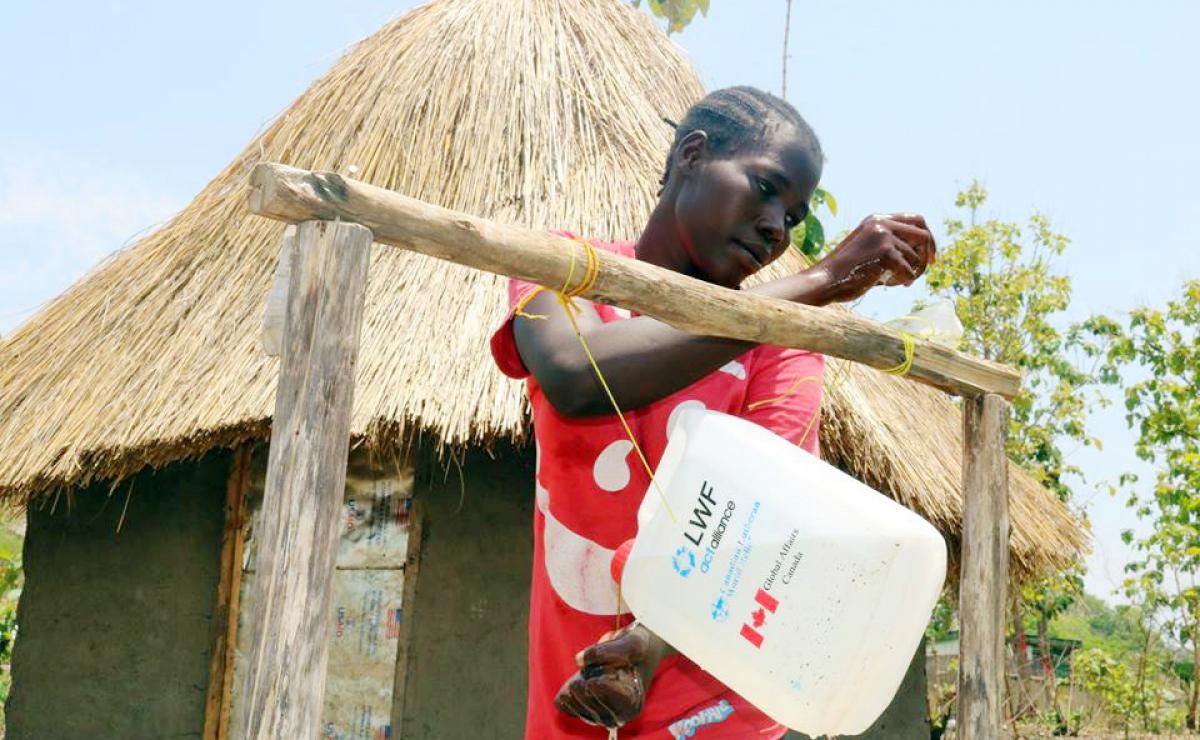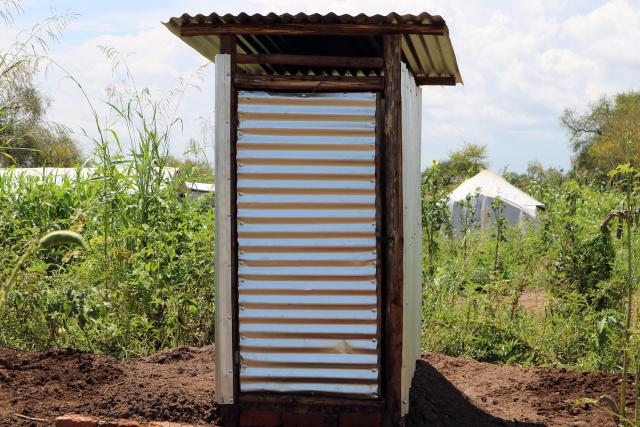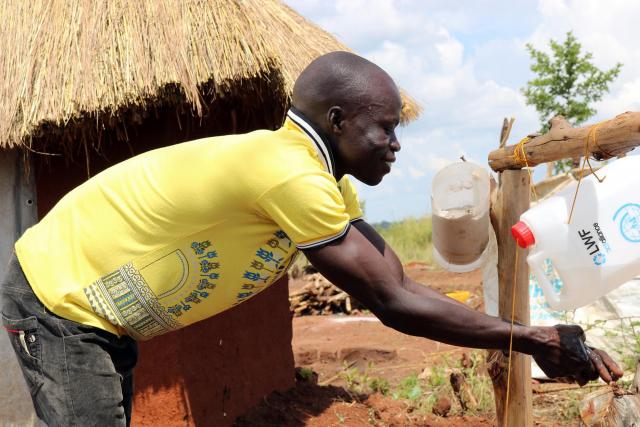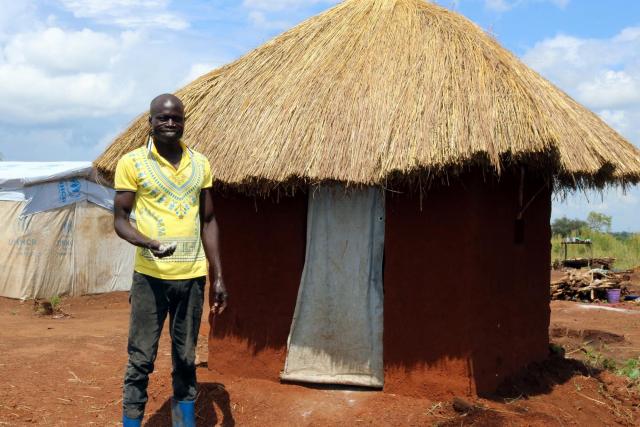Palorinya settlement registers improvement in latrine coverage

8,279 out of 11,331 families have household latrines in Palorinya settlement located in Uganda’s Northern region. This is unlike December 2016 when none of the migrant families had a household latrine in the settlement that hosts South Sudanese refugees. Some of the families without household latrines would use communal latrines constructed by the Lutheran World Federation (LWF) while the rest engaged in the unhygienic practice of open defecation.
However, this has changed as over 7,762 households had constructed their own latrines by January, 2018. This follows continuous sensitizations of the populaces in Palorinya about sanitation and hygiene by LWF’s Hygiene Promoters. “To influence people to construct household latrines, we not only sensitize them but also provide latrine construction kits and materials.” Says LWF’s Richard Akena. “Each household receives a plastic slab, treated poles, nails they can use to construct a standard latrine.”
LWF also constructs and offers people with special needs (PSNs) in Palorinya fully constructed latrines and hand washing facilities. 20-year-old Mismilia Tabu in Ibakwe zone of Palorinya settlement is one of the people who constructed a household latrine after receiving a latrine construction kit from LWF.

“I couldn’t afford materials required to construct a latrine, and my family turned to shrubs for defecation.” “But when I received materials from LWF, I constructed a latrine in just two weeks to protect my family from diarrhoea diseases.” Tabu explains.
35-year-old Rose Keji is a mother of 5 who got a fully constructed latrine from LWF after being identified as a vulnerable person who couldn’t engage in any construction work. “Keji suffered gunshots in her limbs and stomach that left her with physical disabilities that she could neither walk nor build her own latrine.” “We offered her a latrine and a hand washing facility so that her household can enjoy as much proper sanitation and hygiene as others.” Says Akena.
Keji is just one of the 517 people with special needs who have received fully constructed latrines from LWF. “7,762 migrant families in Palorinya have constructed household latrines after receiving latrine construction kits from LWF.” Adds James Drichi a Water and Sanitation Manager with LWF.

A tippy tap for every household to facilitate hand washing
While it has become mandatory for every household to own a latrine, families are also advised to own a hand washing facility to facilitate regular hand washing for proper hygiene and sanitation as well as good health. LWF’s Hygiene Promoters are playing the role of sensitizing Palorinya settlement’s populaces about the benefits of regular hand washing.
“Regular and proper hand washing protects people from infections especially respiratory and diarrhoea diseases.” Adds Carlos Abure, a Hygiene Promoter with LWF in Ibakwe village. To influence Palorinya settlement’s populaces to adapt the hand washing culture, Abure says that LWF provides tippy taps to all households with latrines.
“We also provide them with soap and teach them how to use ash as a disinfectant whenever they don’t have access to soap.” Abure adds.

Why household latrines?
Open defecation was rampant in Palorinya settlement from December, 2016 to the early months of 2017. This was attributed to the absence of household latrines. This came with adverse effects to residents of Palorinya settlement as described below.
“We couldn’t breathe fresh air as the environment smelt like faecal matter and the buzz of flies was the music of the day.” Says Flora Amma who describes the experience as disturbing, unhygienic and unhealthy. Jaleda Awuzuru explains that her family especially the children would complain on regular diarhorea infections before they constructed a household latrine and would engage in open defecation.
“We chose to defecate in the open even when we had a communal latrine in our proximity because it was never clean, it had a sharp stench and I was afraid that my children would catch urinary tract infections from the communal latrines.” With a household latrine, Awuzuru explains that her household enjoys improved hygiene and health.
Awuzuru continues to say that with their household latrine, her family especially the adults now enjoy privacy unlike before. “It was embarrassing whenever people walked by while you were defecating.” Amma adds that she doesn’t have to worry about her children’s safety unlike before when they had to go to bushes at night to answer nature’s call.
Note: LWF works towards increasing the latrine coverage in Palorinya settlement to eradicate open defecation by the end of 2018, to increase the use of latrines and encourage the adoption of good hygiene practices among the migrant populaces in Palorinya settlement.

